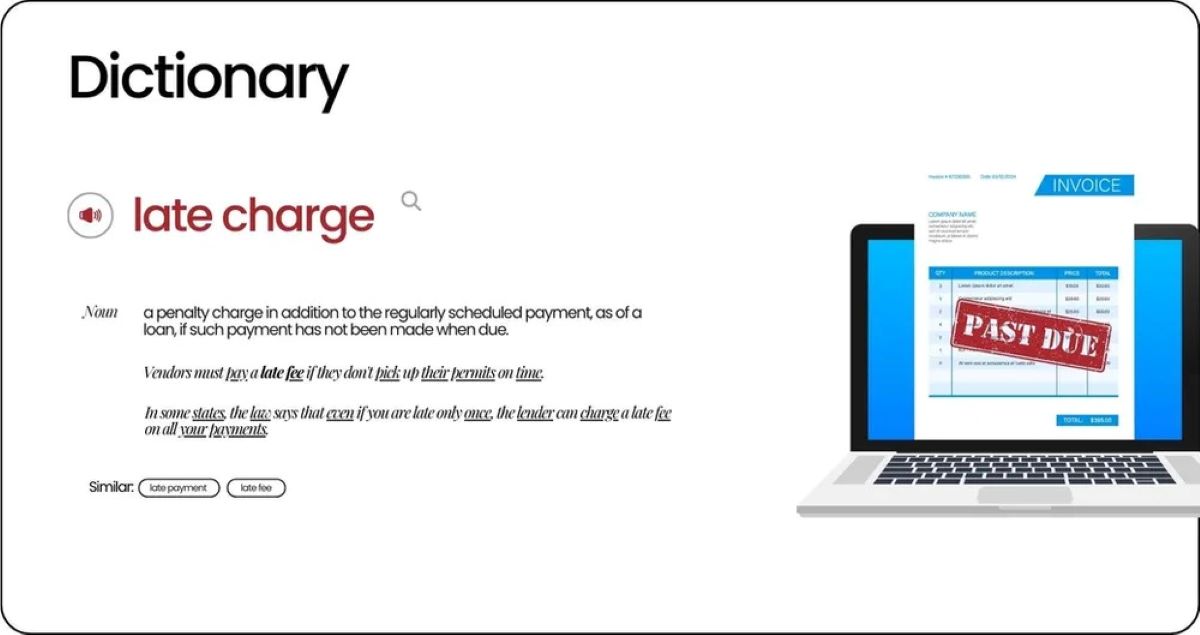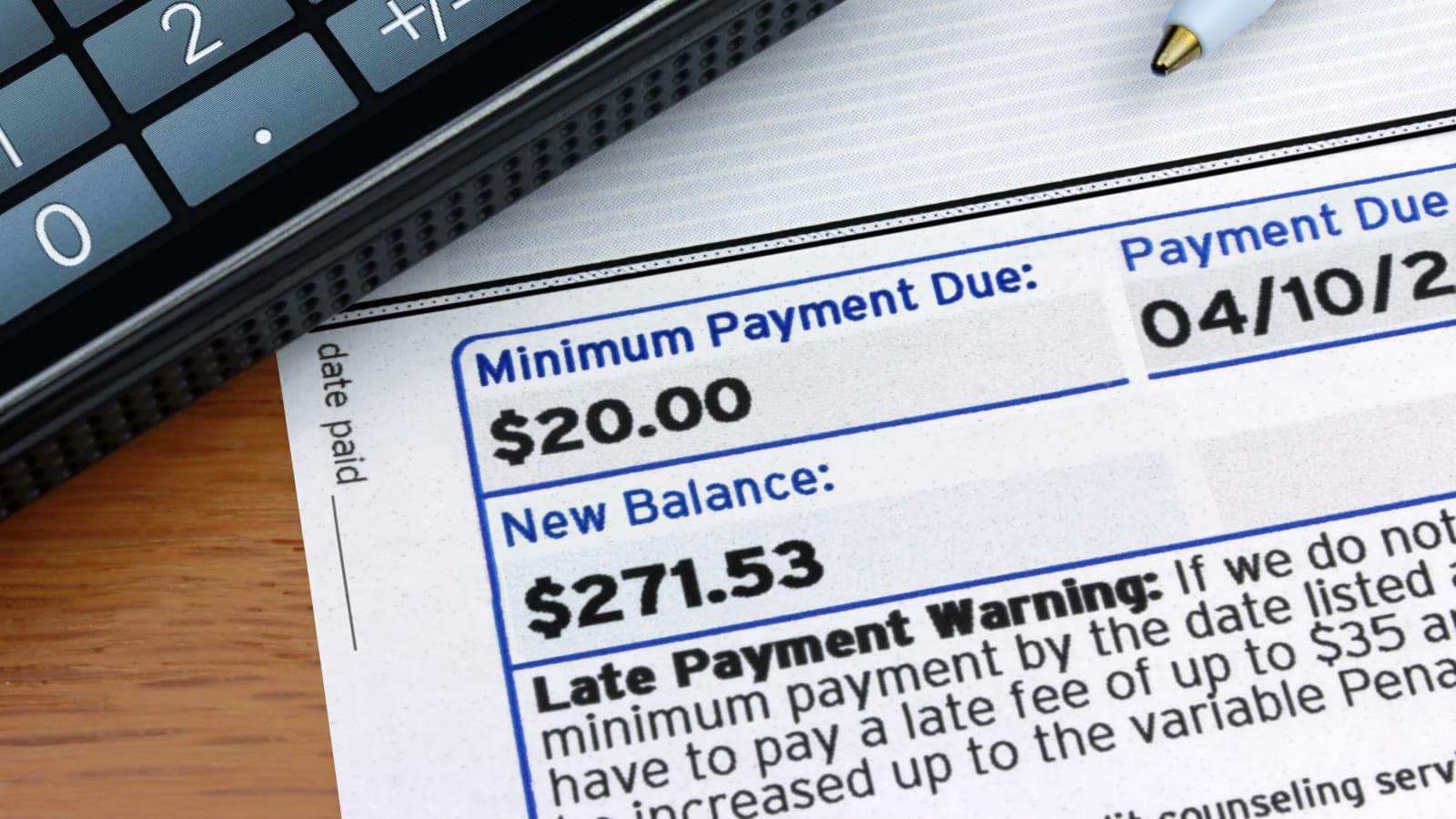Home>Finance>How Many Days Late On Mortgage Before Reported To Credit Bureau


Finance
How Many Days Late On Mortgage Before Reported To Credit Bureau
Modified: March 10, 2024
Find out how many days late on your mortgage payment before it affects your credit score. Stay on top of your finances and avoid negative impacts on your credit.
(Many of the links in this article redirect to a specific reviewed product. Your purchase of these products through affiliate links helps to generate commission for LiveWell, at no extra cost. Learn more)
Table of Contents
- Introduction
- What is a credit bureau?
- How does mortgage payment affect credit?
- Reporting timeline: When is a late mortgage payment reported to the credit bureau?
- Impact on credit score: How does a late mortgage payment affect your credit score?
- Consequences of late mortgage payment reporting
- Strategies to avoid late mortgage payments and credit damage
- Conclusion
Introduction
Owning a house is a dream for many people, and obtaining a mortgage is often a necessary step in achieving that dream. However, it is vital to understand the financial responsibilities that come with a mortgage, including making timely payments. Missing or making late mortgage payments can have significant consequences, not only on your financial well-being but also on your credit score.
In the world of credit, a late payment on your mortgage can be reported to credit bureaus, which can have a lasting impact on your creditworthiness. Credit bureaus collect and maintain consumer credit information, providing this data to lenders and other entities when evaluating an individual’s creditworthiness.
Understanding how your mortgage payment affects your credit and the timeline in which late payments are reported to credit bureaus is essential for maintaining a healthy credit profile. This article will delve into these aspects, discussing the implications of a late mortgage payment on your credit and offering strategies to avoid late payments and mitigate potential credit damage.
By understanding the importance of timely mortgage payments and their impact on your credit, you can take proactive steps to protect your financial standing and maintain a positive credit history. So, let’s dive deeper into the world of credit bureaus and learn how a late mortgage payment can affect your overall creditworthiness.
What is a credit bureau?
A credit bureau, also known as a credit reporting agency, is an organization that collects and maintains financial information on individuals and businesses. These bureaus gather data from various sources, such as lenders, credit card companies, and public records, to create credit reports for consumers.
The primary function of credit bureaus is to compile and analyze this information to assess an individual’s creditworthiness. They assign a credit score based on factors like payment history, credit utilization, length of credit history, types of credit, and new credit applications. This credit score is a numerical representation of an individual’s creditworthiness, with higher scores indicating a lower credit risk.
In the United States, the three major credit bureaus are Equifax, Experian, and TransUnion. These bureaus collect and maintain credit information from millions of consumers, providing this data to lenders, landlords, insurance companies, and other entities that need to evaluate an individual’s creditworthiness.
Credit bureaus play a crucial role in the lending process, as they help lenders assess the risk associated with extending credit to individuals. A high credit score increases the likelihood of obtaining favorable lending terms, such as lower interest rates, while a low credit score may result in higher interest rates or even denial of credit.
It’s important to note that credit bureaus have certain responsibilities and obligations under federal regulations, such as the Fair Credit Reporting Act (FCRA). These regulations ensure accuracy and fairness in the information collected and reported by the bureaus.
In summary, credit bureaus collect and maintain financial information on individuals and businesses, create credit reports, and assign credit scores based on this data. Lenders and other entities rely on these reports to make informed decisions when extending credit. Understanding the role and function of credit bureaus is key to comprehending how mortgage payments can impact your credit.
How does mortgage payment affect credit?
Your mortgage payment is a crucial factor in determining your creditworthiness. Making timely mortgage payments can have a positive impact on your credit, while missing or making late payments can harm your credit score. Here are some ways in which your mortgage payment affects your credit:
1. Payment history: Your payment history makes up a significant portion of your credit score. Timely mortgage payments demonstrate responsible financial behavior and can help boost your credit score. On the other hand, missed or late mortgage payments can have a negative impact and lower your credit score.
2. Credit utilization: Your mortgage debt is considered part of your overall credit utilization ratio. This ratio compares your total credit balances to your available credit. As long as you are making your mortgage payments on time and managing your other credit responsibly, having a mortgage can help maintain a healthy credit utilization ratio.
3. Length of credit history: The length of time you have held a mortgage account also contributes to your credit score. A longer credit history can positively impact your creditworthiness, showing lenders that you have a track record of managing a significant financial obligation like a mortgage.
4. Mix of credit types: Having a mortgage adds diversity to your credit profile. Lenders like to see a mix of credit types, including both installment loans (such as a mortgage) and revolving credit (such as credit cards). This mix can demonstrate your ability to handle different types of credit responsibly, potentially improving your credit score.
5. Credit inquiries: When applying for a mortgage, lenders typically pull your credit report, resulting in a hard inquiry. While a single hard inquiry may have a minor impact on your credit score, multiple inquiries within a short period can be more detrimental. It’s important to shop around for mortgage rates within a limited timeframe to minimize the impact on your credit.
In summary, your mortgage payment history affects your credit score by demonstrating your ability to manage debt responsibly. Timely payments can boost your credit, while missed or late payments can harm your creditworthiness. Additionally, having a mortgage can contribute to your credit profile by increasing credit diversity and lengthening your credit history. It is crucial to prioritize making timely mortgage payments to maintain a positive credit standing.
Reporting timeline: When is a late mortgage payment reported to the credit bureau?
Late mortgage payments can have a significant impact on your credit, but when exactly does a late payment get reported to the credit bureau? The reporting timeline varies depending on the policies of the lender and the credit bureaus. Here are some key points to understand:
1. Grace period: Most mortgage lenders provide a grace period, typically 15 days, during which you can make your payment without it being considered late. If you make your payment within this grace period, it will not be reported as a late payment to the credit bureau.
2. Reporting to credit bureaus: After the grace period, if you have not made your mortgage payment, the lender may report the late payment to the credit bureaus. However, some lenders may not report it until the payment is 30 days late, while others may report it sooner.
3. Impact on credit score: Once a late payment is reported to the credit bureau, it can have a negative impact on your credit score. The severity of the impact depends on factors such as the number of late payments, the duration of the delinquency, and your overall credit history.
4. Reporting frequency: Lenders typically report payment information to the credit bureau on a monthly basis. This means that if you miss or make a late payment, it will usually be reported in the following month’s credit report.
5. Credit report updates: Credit reports are regularly updated, but there may be a lag between when a late payment occurs and when it appears on your credit report. It’s important to monitor your credit report regularly to stay aware of any changes in your payment status.
It’s essential to note that once a late payment is reported to the credit bureau, it will remain on your credit report for up to seven years. This can have long-lasting consequences on your creditworthiness and may affect your ability to obtain favorable credit terms in the future.
To avoid late payments, it is advisable to set up automatic payments or reminders, ensuring that your mortgage payments are made on time. Communicating with your lender in case of financial difficulties can also help in exploring options to prevent late payments and potential credit damage.
In summary, the specific timeline for when a late mortgage payment is reported to the credit bureau can vary, but it is generally after the grace period and within 30 days of the due date. Regularly monitoring your credit report and making timely mortgage payments is vital in maintaining a positive credit history.
Impact on credit score: How does a late mortgage payment affect your credit score?
Your credit score is a key factor that lenders use to assess your creditworthiness. A late mortgage payment can have a significant impact on your credit score, and understanding how this affects your overall creditworthiness is crucial. Here are some key points to consider:
1. Payment history: Your payment history contributes to about 35% of your credit score, making it one of the most critical factors. A late mortgage payment is considered a delinquency and can have a negative impact on your credit score. The more recent and frequent the late payments, the greater the impact on your credit.
2. Severity of delinquency: The impact of a late mortgage payment on your credit score depends on the severity of the delinquency. For example, a payment that is 30 days late might have a smaller impact than a payment that is 90 days late or more. The longer the delinquency, the more negatively it will affect your credit score.
3. Credit score reduction: The exact decrease in your credit score due to a late mortgage payment can vary depending on various factors. However, even a single late payment can cause a significant drop in your credit score. The higher your credit score before the delinquency, the more significant the impact may be.
4. Long-term credit damage: Late mortgage payments can remain on your credit report for up to seven years, depending on the credit bureau’s reporting policies. Even after you catch up on your payments, the late payment history can still be visible to lenders. This can make it more challenging to obtain new credit or secure favorable terms in the future.
5. Creditworthiness assessment: Lenders often use credit scoring models to evaluate your creditworthiness. Late mortgage payments may signal to lenders that you are struggling with your finances or are not reliable in managing your obligations. This perception can result in higher interest rates on future loans or even denial of credit.
6. Credit repair: Recovering from a late mortgage payment and rebuilding your credit can take time and effort. Consistently making timely mortgage payments moving forward can demonstrate improved financial responsibility and contribute to gradually rebuilding your credit score over time.
To minimize the negative impact of a late mortgage payment on your credit score, it’s crucial to prioritize making timely payments. Setting up automatic payments or reminders, monitoring your credit report regularly, and contacting your lender in case of financial difficulties can all help prevent late payments and potential credit damage.
In summary, a late mortgage payment can have a significant negative impact on your credit score. It is essential to prioritize making timely payments to maintain a positive credit history and increase your chances of obtaining favorable credit terms in the future.
Consequences of late mortgage payment reporting
Reporting a late mortgage payment to the credit bureaus can have various consequences that can affect your financial health and creditworthiness. Understanding these consequences is essential to grasp the importance of making timely mortgage payments. Here are some key ramifications of a late mortgage payment being reported:
1. Negative impact on credit score: As discussed earlier, a late mortgage payment can cause a significant drop in your credit score. This decrease can make it more challenging to secure new credit, obtain favorable interest rates, or qualify for loans in the future. A lower credit score can also lead to higher insurance premiums and a negative perception from potential lenders and landlords.
2. Increased interest rates: Late mortgage payment reporting can result in higher interest rates on your existing mortgage. If your credit score declines due to a late payment, lenders may view you as a higher credit risk, which can lead to a higher interest rate when refinancing or obtaining new financing. This can significantly impact the total cost of your mortgage over time.
3. Limited access to credit: A late payment history on your credit report can make it difficult to obtain new credit in the future. Lenders may hesitate to extend credit or might offer less favorable terms due to perceived financial risk. This can include credit cards, auto loans, and other financing options.
4. Difficulties in renting or leasing: Late payment reporting can also impact your ability to rent or lease a property. Landlords often perform credit checks on prospective tenants to assess their financial responsibility. A negative payment history on your credit report may deter landlords from approving your application or may require a higher security deposit.
5. Employment prospects: In some cases, a late payment history on your credit report can also impact your employment prospects. Certain employers, especially those in finance or positions that involve handling money or sensitive information, may conduct credit checks as part of their hiring process. A negative credit history, including late mortgage payments, may raise concerns about your financial responsibility and affect your chances of securing certain job opportunities.
6. Difficulty in refinancing or modifying your mortgage: If you experience financial challenges and need to refinance or modify your mortgage, a late payment history can make it more difficult to obtain favorable terms. Lenders may be hesitant to work with individuals who have a history of late mortgage payments, potentially limiting your options for financial assistance.
To mitigate these consequences, it’s crucial to make your mortgage payments on time and communicate with your lender if you encounter financial difficulties. By proactively addressing any issues and staying committed to responsible financial management, you can minimize the negative impact of late mortgage payment reporting.
In summary, the consequences of a late mortgage payment being reported to the credit bureaus can include a lower credit score, higher interest rates, limited access to credit, difficulties in renting or leasing, potential employment challenges, and obstacles in refinancing or modifying your mortgage. Prioritizing timely mortgage payments is essential to protect your creditworthiness and financial well-being.
Strategies to avoid late mortgage payments and credit damage
Late mortgage payments can have severe consequences on your credit health and financial well-being. To prevent late payments and mitigate potential damage to your credit, consider implementing the following strategies:
1. Create and stick to a budget: Establish a monthly budget that includes your mortgage payment as a priority expense. Track your income and expenses to ensure that you allocate sufficient funds for your mortgage payment each month.
2. Set up automatic payments: Many lenders offer the option to set up automatic payments, allowing your mortgage payment to be deducted directly from your bank account. This can help ensure that your payment is made on time, reducing the risk of forgetting or missing the due date.
3. Establish an emergency fund: Build an emergency fund to cover unexpected financial expenses. Having this cushion can help you avoid financial stress and ensure that you have enough funds to make your mortgage payment even in challenging times.
4. Communicate with your lender: If you encounter financial difficulties that may affect your ability to make your mortgage payment, reach out to your lender as soon as possible. They may be able to offer options such as loan modification, forbearance, or a repayment plan to help you navigate difficult financial situations.
5. Set up payment reminders: Use mobile apps, online calendars, or even simple alarms to remind yourself of upcoming mortgage payments. Regular reminders can help you stay on track and make timely payments.
6. Consider bi-weekly payments: Instead of making one monthly payment, explore the option of splitting your mortgage payment into bi-weekly payments. This can help you pay off your mortgage faster and reduce the chances of missing a payment.
7. Monitor your credit report: Regularly review your credit report to ensure its accuracy and to stay aware of any late payment reporting. If you notice any errors or discrepancies, report them to the credit bureau and your lender to have them corrected.
8. Seek credit counseling if needed: If you’re struggling to manage your finances and make mortgage payments, consider seeking assistance from a credit counseling agency. They can provide guidance on budgeting, debt management, and strategies to avoid late payments.
Remember, prevention is key when it comes to avoiding late mortgage payments and potential credit damage. By implementing these strategies and maintaining financial discipline, you can protect your creditworthiness and maintain a positive credit profile.
In summary, strategies such as budgeting, automatic payments, emergency funds, open communication with your lender, payment reminders, bi-weekly payments, credit monitoring, and seeking credit counseling can help you avoid late mortgage payments and mitigate potential credit damage. Proactive financial management is essential for maintaining a healthy credit profile and overall financial well-being.
Conclusion
Understanding the impact of late mortgage payments and how they affect your credit is essential for maintaining a healthy financial profile. Your creditworthiness is crucial when it comes to obtaining favorable interest rates on loans, securing rental agreements, or even finding employment in certain industries. By following the strategies outlined in this article, you can help avoid late mortgage payments and mitigate potential damage to your credit.
Remember, making timely mortgage payments is not only a responsibility as a homeowner but also a way to protect your credit score. Timely payments demonstrate financial responsibility and can positively influence your creditworthiness. Additionally, maintaining a good credit score opens doors to better loan terms, lower interest rates, and increased financial opportunities.
Take advantage of tools such as automatic payments, payment reminders, and budgeting techniques to ensure that your mortgage payments are made on time. If you encounter financial difficulties, communicate with your lender and explore options to avoid late payments and potential credit damage.
Regularly monitoring your credit report is also crucial in identifying any potential issues or errors in your payment history. Addressing these issues promptly can help safeguard your credit health.
By prioritizing your mortgage payments, managing your finances responsibly, and utilizing the strategies outlined in this article, you can protect your creditworthiness and maintain a positive credit profile. Remember, a strong credit standing opens doors to financial opportunities and helps secure a stable and bright financial future.
In conclusion, be proactive in managing your mortgage payments, stay vigilant in monitoring your credit, and take the necessary steps to protect your creditworthiness. By doing so, you can safeguard your financial future and maintain a solid credit foundation.














